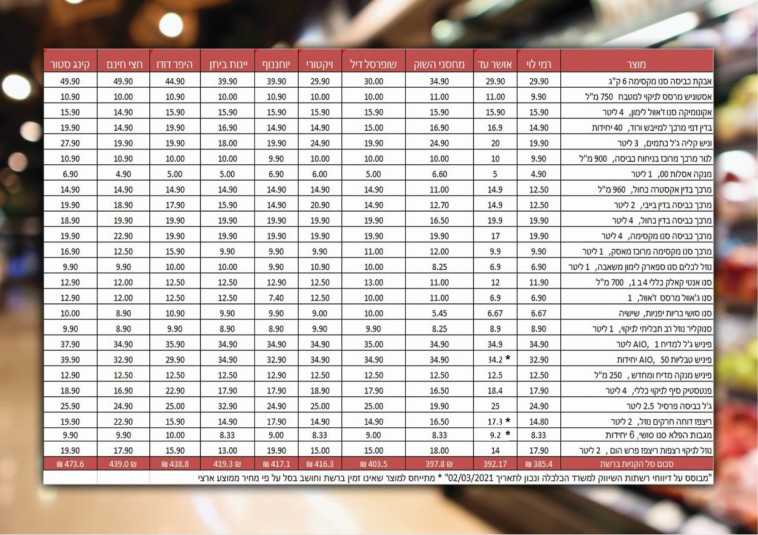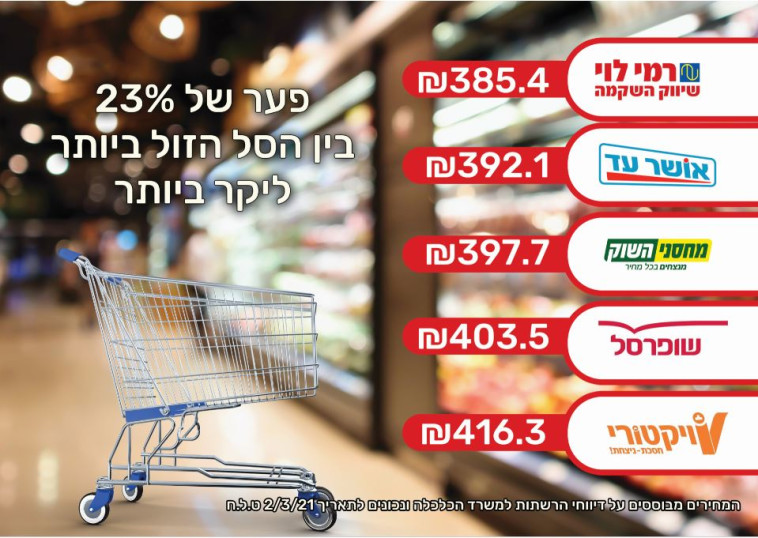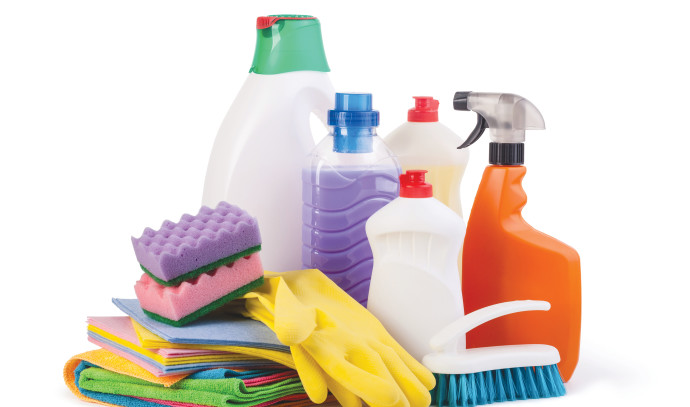Passover is upon us, and as every year, cleaning the house occupies a prominent place in the preparations for the holiday. It turns out that pre-holiday days affect the behavior of shoppers and consumers, even those who do not attest to themselves “making panels.” It turns out that Passover is one of the most influential holidays in the consumption of detergents, and the surprising part is that it affects not only the ultra-Orthodox and traditional sector, but also the secular, and even non-Jewish residents of Israel, who have no need or custom to prepare the house for Passover through thorough cleaning . The culture of consumption, it turns out, radiates in this case from the Jewish majority to the general public.
The sectoral point is interesting in the context of detergents because when consumers survey about buying kosher food for Passover and strictly avoiding pickles during the holiday, different consumption patterns are revealed between religion and sector and sector (also between different communities within the Jewish sector, e.g. ), But when we talk about cleanliness, one can notice responses that are less differentiated by religion, nationality or ethnicity, and deal more with three types of consumers: the “constant cleaner”, who is a year-round cleaning enthusiast, the “indifferent consumer”, who never dates or A cultural affiliation will not make him clean anymore just before Passover, and for the large group of those who testify that they intend to clean the house especially thoroughly in preparation for the upcoming holiday.
 Cleaning survey (Photo: Maariv Online)
Cleaning survey (Photo: Maariv Online)As mentioned, it is not just Jews: in the month before Passover, there was a sharp increase in sales of cleaning products in the Arab sector as well. The question is what causes the secular or Arab public, which does not prepare its house for Passover in a significant way, to consume more detergents?
There are two answers to this question: the first is a cultural influence of many years, lasting from previous generations, who used to clean and prepare the house for Passover, a practice that permeated future generations, even though they distanced themselves from faith and religious precepts. The second – and the more important effect – is much more trivial: it is a period when there are promotions and publications for cleaning materials, and the exposure to them at points of sale is considerably higher than on days when they are repaired.
Buyers who come to the retail chains to shop during this period are exposed to massive displays that are accompanied by attractive sales of cleaning materials and aids at surprising and discounted prices, sometimes at tens of percent of the prices we are used to.
The effects are noticeable even on online sales sites during this period, so that even a consumer who does not come during this period to purchase frontally will be exposed to the stimulus of the products and promotions, so the stimulus is almost the same for most potential buyers. One of the characteristics of the period is the concentrated and increased purchase of detergents. Most consumers buy well-known brands, but introducing new products to the consumer these days also records higher success rates.
Disinfect instead of cleaning
The past year has caused major changes in consumer culture. Public awareness of the issue of hygiene has skyrocketed, and not only personal but also environmental hygiene, with an emphasis on antibacterial products and other products that are not only “cleaners” but also considered disinfectants. There was also an increase in sales of damp cloths and various disinfectant and cleaning sprays.
There are quite a few well-known players in the global detergent market, but in Israel Snow leads the field in terms of sales volume, innovation and high brand loyalty, and presents solutions in every segment in the field vis-à-vis international brands, with brands such as Snow Sushi, Maxima and Jewel. The global Procter & Gamble company, represented in Israel by Diplomat, owns brands such as Ariel, Tide and Fairy.
Among the importers, we will also mention the global Rakit Bankizer company, which markets the Kalia, Cologne, Finish and Ditol brands. Another Israeli brand that has done a facelift and gained exposure in recent months is the Touch brand of the Shaniv company, which offers a variety of products and solutions, usually at lower prices than the products of the leading brands.
 Cleaning survey (Photo: Maariv Online)
Cleaning survey (Photo: Maariv Online)The competition in the marketing chains these days is fierce and tumultuous from the attempt to capture the attention of buyers and enjoy an increase in sales while presenting particularly attractive promotions for cleaning materials and aids. The Institute for Retail Research, in conjunction with data from the Ministry of Economy based on Pricez’s price comparison system (the prices indicated are based on the network prices transmitted to the Ministry of Economy and produced using the CHP system and Pricez by the Institute for Retail Research) , Where we will save (up to) tens of percent and where we will pay more.
As we can see, there are significant gaps between chains, which will affect our monthly household expenses in the run-up to Passover, but the question is whether the cleaners’ operations come at the expense of other products for which we will pay more? Our tip is to be focused on buying, avoid temptations and unnecessary consumption and examine the whole basket and not just the products presented to us on sale.
The author is the founder and CEO of the Institute for Retail Research
